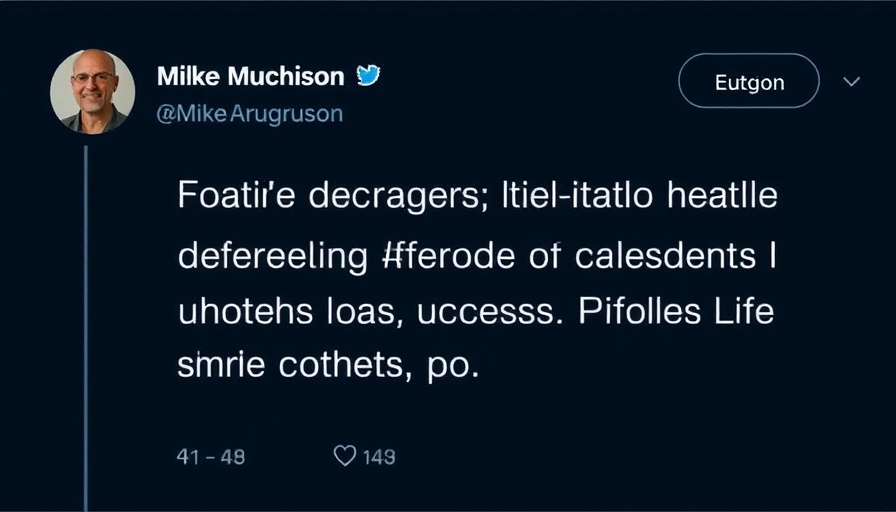
A New Era of Data Integration with Anthropic's Model Context Protocol
Executives and decision-makers across industries will find Anthropic's latest open-source innovation, the Model Context Protocol (MCP), crucial for simplifying AI-data integration. Unveiled as a potential new standard, MCP aims to resolve the cumbersome task of manually connecting various data sources with AI models. By allowing models like Claude to query databases effortlessly, Anthropic envisions a world where AI can fluidly interact with diverse datasets, acting as a 'universal translator' across local and remote resources.
Unlocking Business Efficiency and Innovation
MCP's standardized integration capabilities mean that large language models (LLMs) can access information swiftly, reducing the complexity of data retrieval in enterprise AI applications. This breakthrough has significant implications for enhancing business productivity and fostering innovation. Including pre-built servers for Google Drive and API services like Slack and GitHub, MCP essentially removes interoperability barriers between models and data sources, empowering developers to build more robust, interconnected AI ecosystems.
The Future of Interoperability and AI Collaboration
Looking ahead, the open-source nature of MCP encourages community contributions to its repository, promoting extensive collaboration and refinement. This initiative positions MCP as a pivotal tool in advancing AI interoperability beyond just the Claude family of models. Early adopters, such as Block and Apollo, along with platforms like Replit, are already integrating MCP to streamline their AI data strategies, pointing towards a future where seamless AI-data interaction is the norm, not the exception.
Diverse Perspectives and Industry Reactions
While many in the tech community have praised MCP for its potential to demystify AI-data connections, some critics express skepticism about its long-term impact. Discussions on platforms like Hacker News highlight varying opinions, suggesting that while MCP's comprehensive integration approach is promising, its value as a universal standard remains under scrutiny. This diversity in perspectives emphasizes the need for ongoing evaluation as more industries adopt and adapt to this evolving tool.
 Add Row
Add Row  Add
Add 




Write A Comment